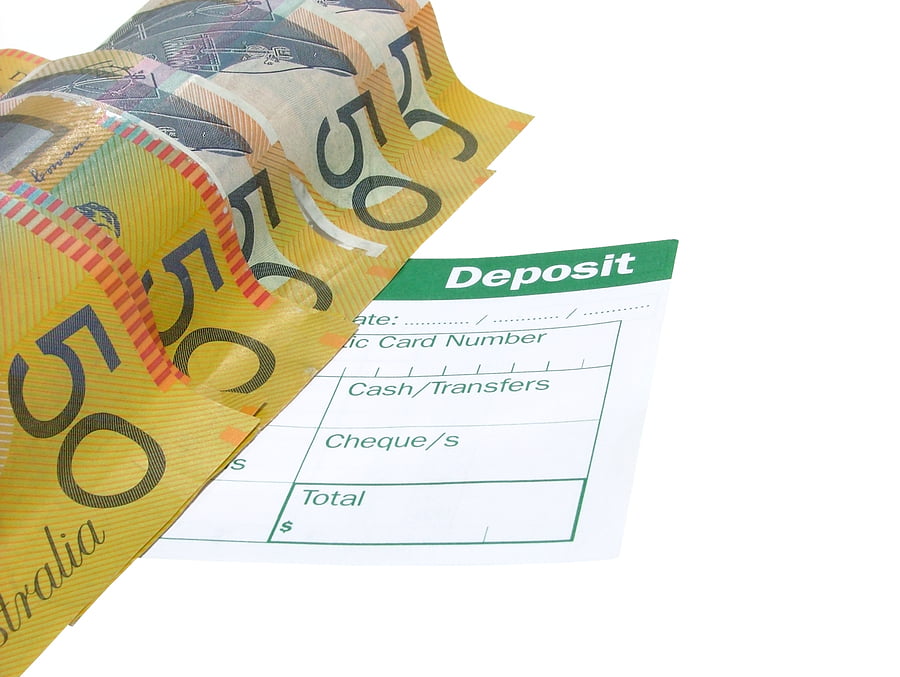 A term deposit offers safety and security to individuals who have a certain amount of money saved and would like to earn steady interest without being subject to the vagaries of the financial market. The money is placed in an account with a financial institution (usually a credit union, building society or bank) for a specific length of time, which might vary from a few weeks to a few years. If an individual decides to withdraw the money prematurely, he/she usually loses a portion, if not 100%, of the interest earned. Before choosing an account, it is a good idea to shop around and compare term deposits.
A term deposit offers safety and security to individuals who have a certain amount of money saved and would like to earn steady interest without being subject to the vagaries of the financial market. The money is placed in an account with a financial institution (usually a credit union, building society or bank) for a specific length of time, which might vary from a few weeks to a few years. If an individual decides to withdraw the money prematurely, he/she usually loses a portion, if not 100%, of the interest earned. Before choosing an account, it is a good idea to shop around and compare term deposits.
Pros
One of the obvious benefits of a term deposit is that it offers a degree of certainty. It reduces the likelihood of spontaneous spending, which can be an enemy to financial stability. At the same time, the account owner has full control, in terms of deciding how long the money should be deposited, and does have the power to make a withdrawal in the case of an emergency. If one is concerned about the potential need to withdraw, he or she should make term deposit comparisons, with a consideration of the conditions offered, before choosing a particular financial institution.
Secondly, a term deposit pretty much guarantees that one's savings will increase. The fixed interest rate applied to such an account is usually quite high, and cannot be affected by sudden fluctuations in the market. Moreover, the account owner can calculate exactly how much profit he or she can expect to make, which can be handy when it comes to financial planning. Other types of savings models are not necessarily able to offer such a high level of stability. It can be useful to see how a term deposit compares to other kinds of accounts.
Some people don't like the idea of investing all their savings in one place. In this case, it is possible to take a "ladder" approach. This involves placing the money in a series of accounts with varying "end dates". This approach means that savers can have more choice and flexibility when it comes to maximising the benefit gained from changing interest rates, as they have the power to withdraw and deposit money at various times. Making term deposit comparisons is crucial to success in the "ladder" strategy, because some accounts offer higher interest rates than others, depending on the length of term.
Cons
The main negative of a term deposit account is that it limits an individual's direct access to their money. If he/she does need it due to an emergency, he/she usually loses all the interest earned, which wouldn't happen with a regular savings account.
Hence, it is important that anyone considering making a term deposit is 100% sure that he or she will not need the money for the course of the term. If there's any doubt, it can be a good idea to split one's savings over two accounts, one of which can be accessed easily.
Shopping Around
The competitive global market means that the range of term deposit accounts offered by financial institutions is incredibly diverse. Any individual considering one should definitely shop around. The key elements in making a decision are the interest rate and the length of term.
It is essential to compare term deposits, to make sure that one's choice will have maximum benefits. After all, earning money involves a lot of hard work!
Joanne Lemke is a final year creative writing student at UOW, who is looking to break into the corporate copywriting space once she graduates and hopefully go on to eventually some day write a book around her other passions, namely cooking and travel.





![5 Tips to Help You Stick to Your Budget [Infographic]](https://lerablog.org/wp-content/plugins/wp-thumbie/timthumb.php?src=http://lerablog.org/wp-content/uploads/2017/05/trwywrthrte-1024x576.jpg&w=300&h=140&zc=1)

